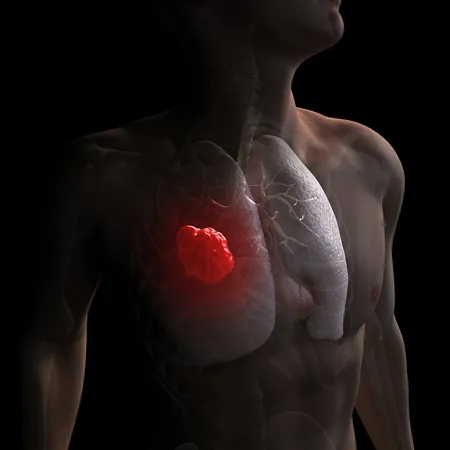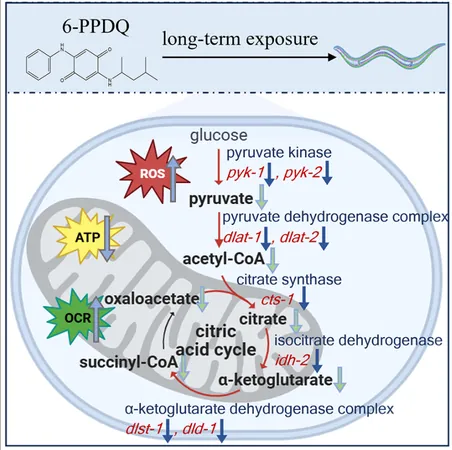
Revolutionary AI Model Could Transform Lung Cancer Screening
2025-05-19
Author: Ming
Groundbreaking AI Technology for Lung Cancer Detection
An innovative artificial intelligence (AI) model is making waves in the healthcare sector, claiming it can accurately predict lung cancer risk using just a single low-dose computed tomography (CT) scan. This landmark research conducted in Korea may change the landscape of lung cancer screening, particularly in Asian populations where non-smoking lung cancer rates are surging.
Meet Sybil: The AI Supermodel
Dubbed 'Sybil', this deep learning model was initially developed with data from the National Lung Screening Trial by researchers at MIT and Harvard Medical School. Lead investigator Yeon Wook Kim, MD, a pulmonologist at Seoul National University Bundang Hospital, hailed Sybil's potential to revolutionize screening practices: "Sybil can help identify individuals at low risk who might not need further screening and highlight those at high risk who should be encouraged to continue monitoring."
Impressive Study Results and Implications
The study, presented at the prestigious 2025 American Thoracic Society International Conference, involved over 21,000 participants aged 50 to 80 who underwent lung cancer screening between 2009 and 2021. Notably, around 11,000 of these participants had never smoked. Follow-ups continued until 2024, revealing that Sybil could predict lung cancer development within six years with remarkable accuracy—86% for one year and 74% for six years across the entire cohort.
Tailored Screening for Never Smokers and Vulnerable Groups
In never smokers, the accuracy rates were similarly impressive, standing at 86% and 79% for one and six years, respectively. However, the model's accuracy dipped among individuals with significant previous lung infections, such as tuberculosis, yet it remained noteworthy.
A Game-Changer for Screening in Asia
Lung cancer poses a global challenge, with alarming statistics indicating that about 63% of new cases and deaths occur in Asia. Historically, low-risk individuals like non-smokers haven't been prioritized for screening, but as the incidence rises, the demand for effective screening solutions is growing. Tools like Sybil could streamline processes by focusing resources on those at the highest risk after a single CT scan.
Looking Ahead: Future Research and Validation
Kim expressed enthusiasm for future research: "We are eager to conduct a prospective study to further validate Sybil in real-world clinical settings and enhance its predictive capabilities for critical outcomes like lung cancer mortality." This pioneering AI could indeed alter the way lung cancer screening is approached, potentially saving countless lives.


 Brasil (PT)
Brasil (PT)
 Canada (EN)
Canada (EN)
 Chile (ES)
Chile (ES)
 Česko (CS)
Česko (CS)
 대한민국 (KO)
대한민국 (KO)
 España (ES)
España (ES)
 France (FR)
France (FR)
 Hong Kong (EN)
Hong Kong (EN)
 Italia (IT)
Italia (IT)
 日本 (JA)
日本 (JA)
 Magyarország (HU)
Magyarország (HU)
 Norge (NO)
Norge (NO)
 Polska (PL)
Polska (PL)
 Schweiz (DE)
Schweiz (DE)
 Singapore (EN)
Singapore (EN)
 Sverige (SV)
Sverige (SV)
 Suomi (FI)
Suomi (FI)
 Türkiye (TR)
Türkiye (TR)
 الإمارات العربية المتحدة (AR)
الإمارات العربية المتحدة (AR)